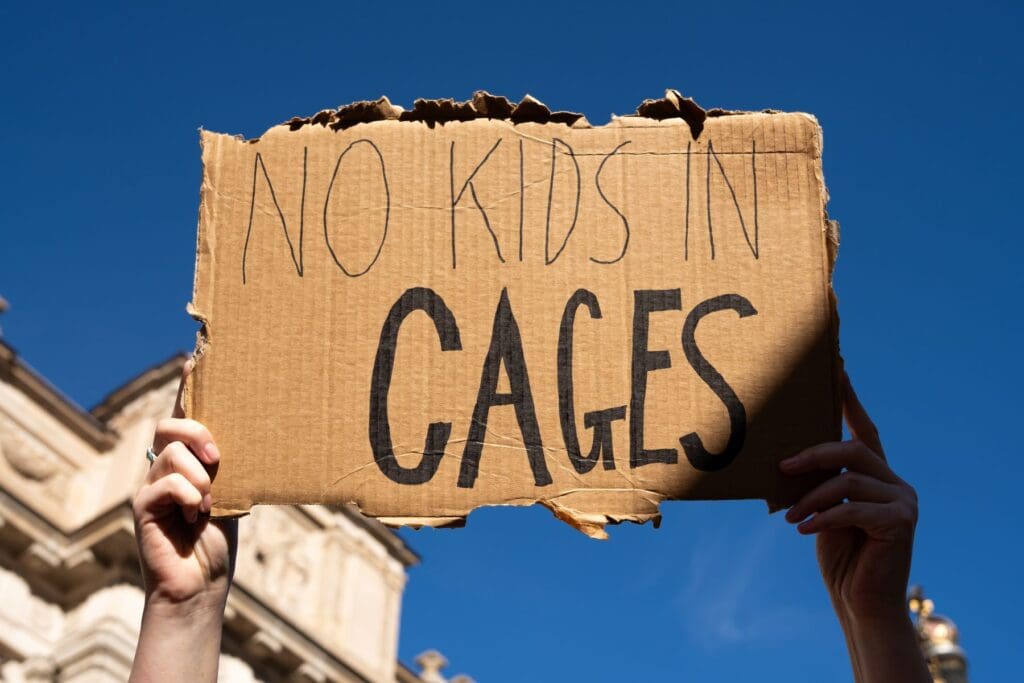Coronial Inquest into Kumanjayi Walker’s death to hear evidence from Aboriginal leaders on self-determined justice solutions
The coronial inquest into the police-shooting death of Kumanjayi Walker will next week hear evidence from Aboriginal experts on community-led solutions to prevent future deaths in custody of Aboriginal people.
On 9 November 2019, 19-year-old Warlpiri and Luritja teen Kumanjayi Walker was killed after being shot three times at close range by police officer Zachary Rolfe in his community of Yuendumu. Constable Rolfe was charged with murder after the shooting but acquitted at trial.
The North Australian Aboriginal Justice Agency (NAAJA), with support from the Human Rights Law Centre are highlighting systemic injustices experienced by Aboriginal people in the Northern Territory and call for:
-
an end to discriminatory policing and excessive use of force by police;
-
independent and robust police accountability mechanisms; and
-
proper resourcing for self-determined justice solutions, community-led alternatives to police and community-controlled health services.
Quotes from Dr John Paterson, Acting CEO at North Australian Aboriginal Justice Agency (NAAJA):
“As the coronial inquest recommences next week, the family and community of Kumanjayi Walker lead with tremendous strength. They continue to participate in this demanding process, at great personal cost to themselves and their families. At a time when we are set to hear evidence from Aboriginal experts and community members calling for self-determined justice solutions, we stand behind the family and the Yuendumu community in their calls for answers, accountability and justice for Kumanjayi Walker.
“Aboriginal communities and organisations have always had the answers. The families and community have shown dignity and leadership throughout this ordeal – and continue to do so. They must be listened to, and governments must act on community calls for change.
“Hundreds of our people have died in custody since the Royal Commission into Aboriginal Deaths in Custody over 30 years ago. Yet governments continue to sit on their hands and fail to act. For as long as governments allow police to act with racism and impunity, deaths in custody will continue.”
Quotes from Amala Ramarathinam, Acting Managing Lawyer at the Human Rights Law Centre:
“While this inquest has been a long and drawn out process, Kumanjayi Walker’s loved ones and community continue to attend and participate at every step of the way. The family and community have led with dignity and strength throughout, as they gave evidence, welcomed the Coroner and all parties into their community and offered meaningful self-determined solutions, so that what happened to their loved one never happens to anyone else.
“We stand behind Kumanjayi’s loved ones, the Yuendumu community and NAAJA in their calls for truth and accountability through the coronial process. Aboriginal and Torres Strait Islander people will continue to die in custody until families, communities and experts are listened to.”
From the week beginning 27 February the coronial inquest will hear evidence from Aboriginal elders and leaders about:
-
The work of law and justice groups and community-run initiatives like Night Patrol, which use cultural authority, traditional knowledge and culturally-appropriate methods of dispute resolution to empower community members.
-
Community policing methods and working respectfully with Aboriginal people and cultural authorities in Aboriginal communities.
Background
The North Australian Aboriginal Justice Agency (NAAJA), with support from the Human Rights Law Centre, is taking part in the coronial inquest into the police-shooting death of Kumanjayi Walker.
NAAJA has been given special leave to appear in the inquest to represent the interests of Aboriginal people in the Northern Territory and highlight systemic injustices that contribute to the ongoing deaths of Aboriginal people in police custody.
NAAJA and the Human Rights Law Centre are not giving further comment at this time.


Media Contact:
Michelle Bennett, 0419 100 519
Media Enquiries
Chandi Bates
Media and Communications Manager

University of Melbourne urged to drop repressive anti-protest and surveillance policies
The University of Melbourne is being urged to abandon policy changes that restrict staff and students’ right to protest and permit the widespread surveillance of people using their wifi network.
Read more
Expanded protections for marginalised groups welcomed in Allan Government’s anti-vilification laws
The Human Rights Law Centre welcomes the additional protections for marginalised groups in anti-vilification laws passed today by the Allan Government. These laws expand protections from vilification to include people from LGBTIQA+ and disability communities, and provide communities with important civil law avenues to address vilification.
Read more
Aboriginal human rights experts take Australia’s racist youth justice policies to the UN
Aboriginal leaders are calling on the United Nations to take urgent action to address Australia’s discriminatory and punitive youth justice policies
Read more


